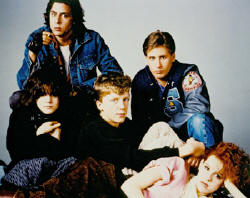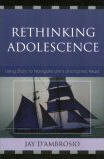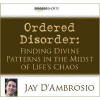Rethinking What Might Have Been
 The first ghost that appeared to Odysseus was that of one of his own sailors, Elpenor, who had died when he fell off the roof of Circe’s palace. He spoke regretfully of the drunken state that had caused him to stumble and fall to his doom. Elpenor entreated Odysseus to give him a proper burial lest his spirit torment the king’s days and haunt his steps. Odysseus swore an oath to provide a suitable wake for his fallen comrade.
The first ghost that appeared to Odysseus was that of one of his own sailors, Elpenor, who had died when he fell off the roof of Circe’s palace. He spoke regretfully of the drunken state that had caused him to stumble and fall to his doom. Elpenor entreated Odysseus to give him a proper burial lest his spirit torment the king’s days and haunt his steps. Odysseus swore an oath to provide a suitable wake for his fallen comrade. One of the best ways to help a student in this situation is to give him the opportunity to share his thoughts and feelings, either in a group of his similarly grieving peers or one-on-one with an adult leader. If not given the chance to be freely expressed, these emotions and thoughts can reach a boiling point and cause some serious problems in a young person’s life. Sharing in this manner allows a student the chance to give substance to his feelings and to put words to otherwise amorphous laments and sorrows. Steps should be taken to ascertain who the close friends of the deceased were so that the group can freely share personal memories and stories. These are some ways in which we can help students to slay the monster Regret.
One of the best ways to help a student in this situation is to give him the opportunity to share his thoughts and feelings, either in a group of his similarly grieving peers or one-on-one with an adult leader. If not given the chance to be freely expressed, these emotions and thoughts can reach a boiling point and cause some serious problems in a young person’s life. Sharing in this manner allows a student the chance to give substance to his feelings and to put words to otherwise amorphous laments and sorrows. Steps should be taken to ascertain who the close friends of the deceased were so that the group can freely share personal memories and stories. These are some ways in which we can help students to slay the monster Regret.Labels: Circe, depression, friendship, ghosts, motivate, Odysseus, regret, service, sorrow




 There is nothing inherently wrong with peer groups or cliques. They are common to every middle and high school, typically based on friendships and mutual interests. However, they do have the potential to twist and mold an adolescent into their own image. The coming-of-age movie The Breakfast Club (1985) illustrates this state of affairs in an entertaining yet poignant way. The entire movie takes place in a Saturday detention hall in a suburban Chicago high school. Represented is one member of each social group in the school.
There is nothing inherently wrong with peer groups or cliques. They are common to every middle and high school, typically based on friendships and mutual interests. However, they do have the potential to twist and mold an adolescent into their own image. The coming-of-age movie The Breakfast Club (1985) illustrates this state of affairs in an entertaining yet poignant way. The entire movie takes place in a Saturday detention hall in a suburban Chicago high school. Represented is one member of each social group in the school.





